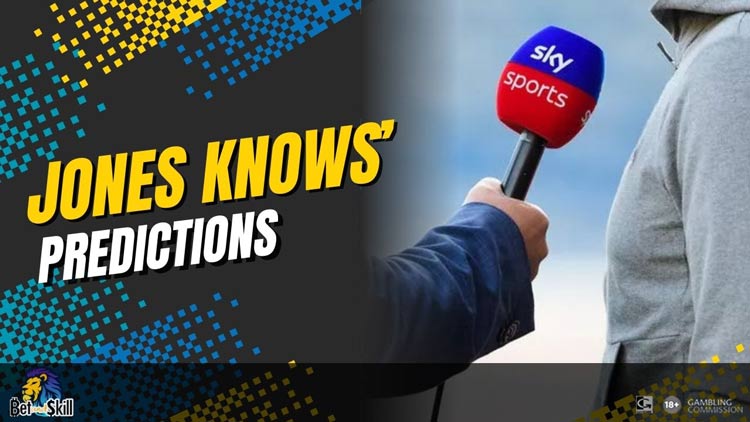The impact of injuries and suspensions on sports outcomes is crucial. These variables have the potential to significantly affect a team’s results for many different reasons.
Key Players Important Players players, particularly those in crucial positions or are stars (such for example, the quarterback of American Football or the goalie in Soccer) could affect a team.
Depth of Squad – Teams with less depth tend to be more prone to struggling with suspensions or injuries because their replacements may not measure up to the standard and quantity of the top players.
Tactical Adjustments
Strategies and Formation Coaching staff will need to alter their team tactics and formations to compensate for the absence of players. This can cause disruption to team efficiency and flow.
The remaining players may be expected to adjust to a new position or responsibility, which could impact team performance and cohesion.
Psychological impact
Morale of the Team The absence of key players may influence the morale and faith of the remaining squad players.
Confidence Of Opponents: Opponents may feel more confident in facing a weakened group.
Data Statistical and Histories:
Past Performance: Historical data on how a team performs without specific players can reveal potential effects. Certain teams may have backups or systems that function, while others could struggle.
Game Context
Importantness of the Match: The significance of the match (e.g. regular season or. playoffs) can influence how much the absence of players affects the team. When it is a crucial game, teams might have additional motivation or strategies to deal with absences.
Strength of the Opponent: The strength of the opponent is also important. A stronger team may be able of exploiting gaps better than a weaker one.
Recovery and return:
The severity of an injury and the expected recovery time is critical. Absenteeism for short periods can have different consequences than chronic illnesses.
Player Form after Return: Players returning from injury or suspension could need time to recover full fitness and match-readyness. This can influence their performance going forward.
Market Reactions
Betting Odds – Injuries as well as suspensions are often the cause of a change in the odds on the betting market, which reflects the perception that they have an impact on the team. This could provide a better understanding of how significant the absences are.
In conclusion, player suspensions and injuries are crucial elements to determine the sports’ results. Because they affect the team’s tactics and team dynamics and general performance, it’s important to incorporate them into other variables like form, head to records, and external factors to make an informed prediction. Check out the most popular best tennis tips for website advice.

What Are The Most Important Strategic And Tactical Considerations When The Prediction Of Sports Outcomes?
Strategic and tactical considerations are extremely important when trying to predict outcomes in sports. The planning and execution of strategies which target weaknesses of an opponent and maximize a team’s strengths is vital. These factors are important.
Matchups are usually the most important element to effective tactics. For example, a football club might utilize a fast full-back in opposition to an opponent who has an wingsman.
Adjusting to the Environment The teams can adapt their plans according to conditions of the weather the playing surface, as well as places, which will maximize their potential.
Flexible and adaptable
In-game Adjustments: Teams who are able to adapt their strategies during the course of a game are usually more successful. This includes tactical substitutions as well as changing formations.
Team that successfully counter the strategies of their adversaries will be more likely to succeed. Being aware of the strategies and tactics will help to take advantage of their strengths.
Strategies for Offensive and Defensive Play:
Defensive organisation: Strong defensive strategies, such as a high pressing or a deep defending can suppress the attacking of an opponent. Teams with organized defenses tend to not concede more goals.
Attacking Variability – Different strategies of attack, such as quick-counterattacks, possession-based playing, or set piece specialistization can slash through the most organized of defenses.
The roles of teams and players:
Clarity of roles: The team’s roles must be clearly defined in order to ensure that everyone knows the tasks they have to perform. This helps the team to carry out their overall game plan in a timely manner.
Key Players: Using key players to maximise their contribution for roles such as midfield playmaker, or attack target player is crucial.
Analyzing Situations and Historical Analyses:
Past Meetings: Looking back at how teams have tactically approached the previous meetings can provide insight into possible game plans and the outcomes.
Current Form: The tactical considerations must be in sync with the current team form and the player’s individual form. A tactic used in the previous might require modification if the situation has changed.
Psychological Impact
The confidence comes from the preparation. Teams that are well-prepared and clearly defined tend to perform with confidence. This mental edge could be critical in tight matches.
Effective tactics frustrate adversaries and may lead to mistakes, lack of motivation, which is vital.
Sport-Specific Considerations:
Soccer: The formations (4-3-3 against. 3-5-2) and the styles of pressing are crucial. Set-piece techniques also are a factor. The choice of tactics will determine if you can control midfield or exploit wide spaces.
Basketball Zone defense vs. Man-to-Man, pace of the game, and offensive plans are vital.
Cricket: Field placements as well as bowling rotations and the batting order can greatly affect the outcome of a game, especially in different formats like Test matches against. T20.
The impact of the manager and coach on the team:
Tactics Know-How: The effectiveness of an football team is typically determined by the coach’s expertise of the game. His ability to formulate and implement tactical strategies that are effective could be an important aspect.
Buy-in of the team: The degree at which the players are able to are able to accept and comprehend the tactical strategies will determine their execution. The execution of strategy has to be executed in a coordinated way.
Conclusion: Strategy and tactics are vital to predict outcomes in sports. They influence every aspect, from the individual’s performance to the team’s dynamics. A solid knowledge of tactics, coupled with an analysis of injuries, the way you play and many other factors, can give a solid foundation for accurate predictions. View the best atp tennis predictions for blog advice.

What Are The Implications Of Psychological Aspects In Predicting Sports Results?
These elements are vital as they affect players’ motivation as well as their mindset. The reason for this is that psychological factors are so important:Confidence, and self-confidence
Positive Mentality: Players and teams with confidence and self-confidence will perform at their highest particularly in situations of pressure or when facing strong adversaries.
Resilience. This trait allows teams and individuals to remain focused in stressful circumstances, and bounce back swiftly from failures or setbacks and strive to achieve perfection.
Motivation and Determination
Motivation comes from within Motivation from within: Personal goals, pride in the sport, and enthusiasm can drive athletes to reach their peak performance, despite external pressures.
External Motivation: External motivators like team goals, fan support and the desire prove critics incorrect can also be sources of motivation.
Mental Toughness
Ability to handle stress Teams and players who have high mental toughness are able to perform well under pressure. They are able to maintain their calm, and make clear decisions in high-stakes scenarios.
Focus and Concentration – Mental strength helps athletes stay focused, to block out distractions and keep their focus throughout the game.
Team cohesion and chemistry:
Positive Relations: Strong bonds and positive relationships between teammates can lead to improved communication, trust, and collaboration in the field, leading to a better teamwork experience and higher performance.
Shared Goals: Teams with the same goal and a common goal are more likely to conquer challenges and work together to achieve success.
Handling Adversity:
Response to setbacks. Psychological factors impact the way players and teams react to setbacks. For instance, conceding an opponent’s goal or losing a game. A resilient team is better prepared to recover and build the necessary comeback.
Mental Rebound: overcoming previous failures or disappointments demands mental strength and the capacity to learn from mistakes, adapt, and move forward with renewed determination.
Preparation & Visualization
Mental Preparation for Competition – Visualization techniques and mental exercises can be used to mentally prepare athletes for competitions, boosting their confidence and performance on the day of the event.
Mental Imagery: Visualizing positive outcomes and visualizing success performance can help athletes gain confidence and ease anxiety.
Opponent Perception:
Respect and respect. Respect vs. Being respectful without being intimidating can foster a focussed and competitive attitude.
Underestimation: Underestimating opponents can result in complacency and a lack of preparation, increasing the chance of a major upset.
Coaching and Leadership Influence
Leadership Impact: Coaches and team captains play a crucial role in influencing the team’s mental climate, instilling confidence, motivation, and resilience by their leadership and communication style.
Psychological support: Offering psychological support to athletes can help them cope with stress, overcome obstacles, and perform their best.
The psychological aspect of sports is vital in predicting results. This is due to the fact that they are able to profoundly influence individual and team performance. Understanding the psychological dynamics in play, while difficult to quantify or assess will provide valuable insight into how teams and individual players will likely perform under various conditions. Integrating psychological variables alongside other aspects, such as form, tactics and external conditions, can provide more comprehensive and accurate forecasts. 